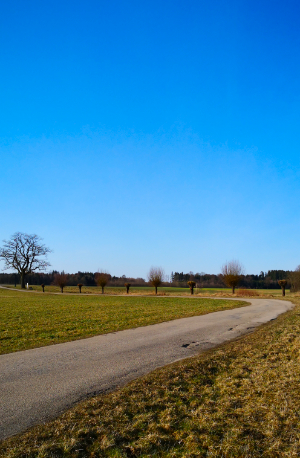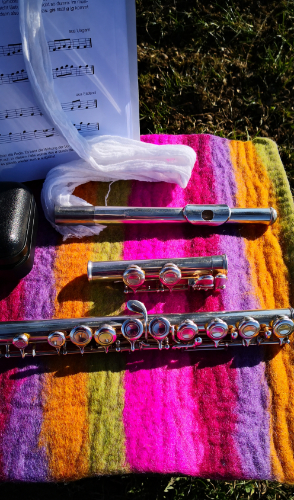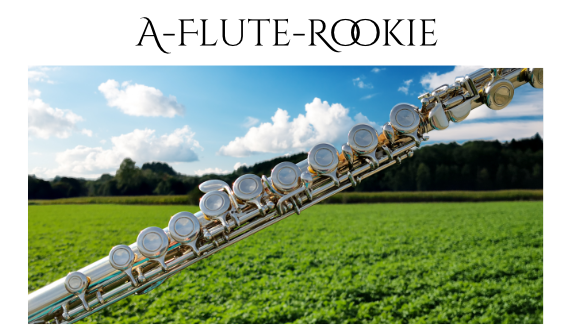March 2021
 I have devised a new, very rare Sunday morning ritual. After getting up, after doing my yoga exercises and meditation, before having breakfast, the transverse flute and I walk for about half an hour to the lonely oak tree. (The cryptic numbers in the header mean the longitute and the latidude of the tree. I have been asked about them.)
I have devised a new, very rare Sunday morning ritual. After getting up, after doing my yoga exercises and meditation, before having breakfast, the transverse flute and I walk for about half an hour to the lonely oak tree. (The cryptic numbers in the header mean the longitute and the latidude of the tree. I have been asked about them.)
It doesn't matter if it's a bit colder, gloves do their job. The important thing is that the sun is shining.
Rarely, because I work every other weekend. When I'm not on duty, I occasionally don't spend the night at home, and then the weather has to be right in the end. Rain doesn't work at all with the flute. Although I recently read about a flute that is made of plastic and has neoprene pads. The sound wouldn't be that bad and you wouldn't be dependent on the weather.
After practising, I wander home thoroughly happy. I will have a very extended breakfast with newspaper reading that lasts almost into the early afternoon.
I am confronted with the tone "D". This is quite difficult for me. The little right finger, which has always been on the flap, has to come off. And the left index finger too. It doesn't work automatically, I always have to send an extra thought from above to my fingers to release them.
The change from C to D, or from H to D is hard. It's like brain jogging. Forwards it's sometimes doable. Playing the notes backwards is even more challenging. But patience will hopefully lead to succes.
At first I thought the notes on the upper octave were different from those on the lower floor. When I play from "G" upwards, I automatically overblow the notes. But if I start at the top, they are on the lower octave. Well, it's absolutely essential to have a further lesson.
The third lockdown has been going on for quite a while now.
I still need a stand for the instrument. It would be better to put it down standing up during a break so that the condensation from inside the flute can drain off. The keys sometimes stick or smack when practising. That annoys me. I try not to use the cigarette paper and the powder paper too often. I don't know if it will damage the pads of the flute over time.
 I work on more pieces from my three music schools. It's slow motion, but I'm not in a hurry. I try out the new pieces out of a certain boredom and because I am tired of the ones I have played so far. The next day again, and the next day after that again. Every new day when I find a little sparetime to practise. If they melody is unclear, I try it out on my piano. That often works quite well, I'll have a musical idea and that helps me a bit.
I work on more pieces from my three music schools. It's slow motion, but I'm not in a hurry. I try out the new pieces out of a certain boredom and because I am tired of the ones I have played so far. The next day again, and the next day after that again. Every new day when I find a little sparetime to practise. If they melody is unclear, I try it out on my piano. That often works quite well, I'll have a musical idea and that helps me a bit.
A friend of mine outed herself. She used to play recorder and the transverse flute when she was younger. We want to play together one day. Preferably outside. In my schools there is often a second part. I would play the easy one and she would take the advanced. That invigorates me and I am happy about the prospect.
The libraries have opened again. I borrow a book by James Galway about the transverse flute and one by Raymond Meylan. He writes something very beautiful: "The true meaning of the word flute is, at first, simply breath. Human breath, still devoid of all song, still pale as water, spice-less and without fragrance. But the word flute also points beyond itself to a sound that is clearly different from the wafting of breath. To a tonal entity of poetic fullness that hovers above the flute like a thought from a higher order".


